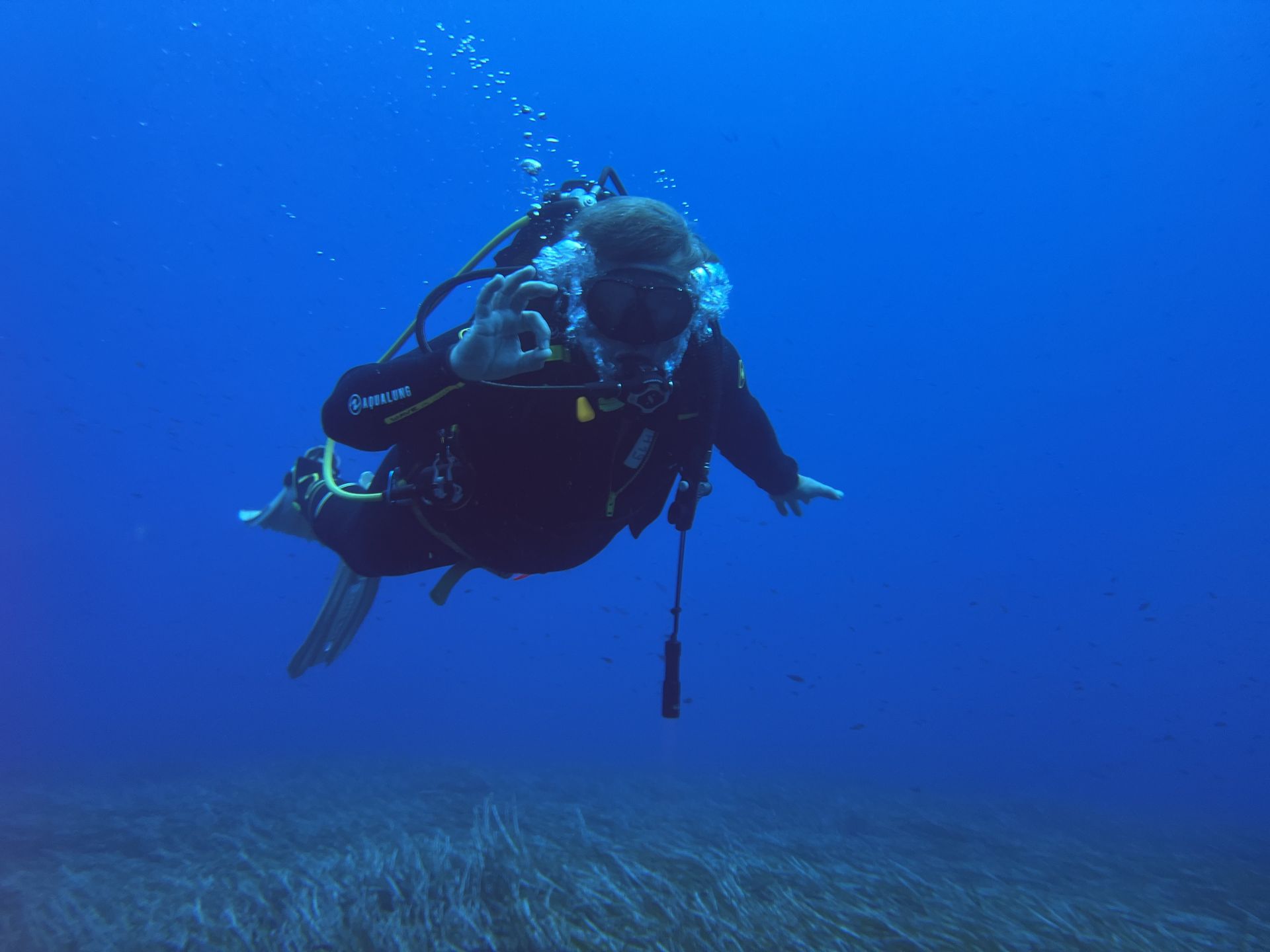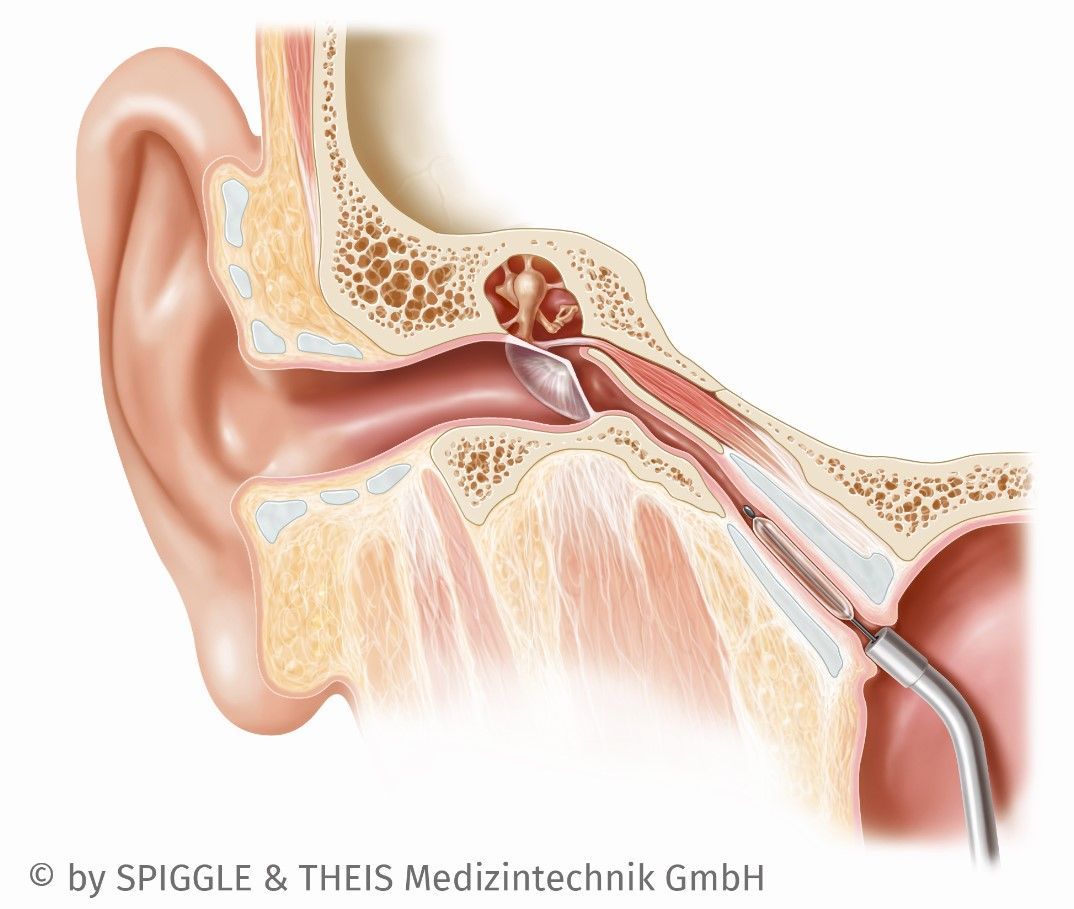Recreational diver / sports diver examinations | Professional diver examinations - periodic examinations | Diver-aspirant examinations prior to admission to diving school | Balloon dilation of eustachian tubes for ear pain
Business and leisure
diving surveys
Medical examination of divers
Commercial diving is a physically demanding job, and there are specific requirements for the diver's physical and health condition. Charlottenlund Privathospital offers examinations conducted by diving doctors approved by the Danish Maritime Authority (Søfartsstyrelsen).
All doctors involved in diver examinations are experienced divers themselves and understand what is required to dive safely and securely, as well as what it takes to work professionally as a diver.
Divers performing diving work must provide proof of having undergone a medical examination for divers that is valid for the specific type of diving work. This medical certificate must be renewed with a medical examination and confirmation of fitness for diving work at intervals of no more than one year.
In Denmark, medical examinations may only be conducted by special diving doctors designated by the Danish Maritime Authority.
Specialist Bjørn Arenkiel is responsible for diving medicine at Charlottenlund Privathospital and has many years of experience in examining divers, as well as treating divers in the hyperbaric chamber at Rigshospitalet, where Bjørn works as a senior consultant.

Balloon dilation of
eustatic tubes
Do you also EXPERIENCE PAIN in your ears when you dive?
Many people experience ear pain during descent into greater depths, where the air in the middle ear is compressed, and the eardrum is subjected to pressure, leading to discomfort. Most divers are aware that they should ascend slightly in the water column and try again, but in some cases, pressure equalization may not be possible, and the dive must be abandoned.
For commercial divers, this can mean an inability to perform their work as usual, or perhaps even the need to end their career. In other cases, this issue may prevent an individual from obtaining their diving certification, forcing them to give up their dream of underwater experiences.
At Charlottenlund Privathospital, clinic director and specialist Jacob Fisker – who is an active diver himself – offers this procedure to selected patients who have difficulty with pressure equalization. The procedures are always performed under full anesthesia, and we have extensive and long-standing experience with this intervention.
Balloon dilation of the Eustachian tube can be performed privately or through health insurance.
Read more about the procedure here - or read Felicia and Marie's story here!

"Earlier this year, I had surgery with you after narrow eustachian tubes had prevented me from boarding a plane for 7 years due to severe discomfort and problems with pressure equalization. Today I had my ears tested on a flight. The surgery made a much bigger difference than I dared to hope for and now I don't have to feel discomfort in my body when I think about traveling around the world. So a heartfelt thank you to you🌺 it will have a great positive impact on my life."
Dbh Felicia
the periodic medical examination
Divers who engage in commercial diving work must have proof of a passed medical examination.
The doctor must assess the diver's physical and mental condition.
A similar examination must be undergone by the diver every 5 years (the full diver’s medical examination). After the diver reaches the age of 50, the full examination must be repeated every 2 years instead of every 5 years.
In the intervening years, the commercial diver must undergo a smaller examination (the "small" diver’s medical examination) annually.
If there are any indications, all relevant conditions must be examined.
A special guideline has been created for doctors appointed as diving physicians by the Danish Maritime Authority (Søfartsstyrelsen).
The guideline includes a list of specific diseases that may render the diver unsuitable or limit their ability to perform diving work.
The doctor will declare the diver as fit, fit with restrictions in the work area, or unfit, depending on whether the diver suffers from any of the diseases listed in the guideline.
The result of the examination is recorded by the doctor in the diver’s certificate.
Price:
- Periodic 1-year examination: DKK 1,500
- Periodic 5-year examination: DKK 2,500
Note: After the diver turns 50, the full 5-year examination must be performed every 2 years.
aspiring divers
Aspiring divers must undergo a thorough medical examination to be accepted into a diving school.
This examination is only required once and includes an assessment of the heart and lungs, as well as vision and hearing tests.
Health Requirements
Divers must be healthy, fit, and resilient.
Any congenital or acquired abnormality, any active or latent, acute or chronic disease, as well as conditions resulting from injury, trauma, or surgery that may be assumed to make the diver unable to dive safely, will result in ineligibility.
The examining doctor must pay special attention to the presence of the following criteria and disorders, which may result in ineligibility for diving. Any underlying conditions must be investigated further if necessary.
As a general rule, all chronic organic disorders and conditions disqualify someone from diving. Chronic inflammatory conditions are grounds for exclusion, as active inflammation is assumed to predispose to decompression sickness.
However, experienced commercial divers are allowed to dive during phases without disease activity, provided there is good compliance with control and treatment.
Price:
- Aspirant examination: DKK 3,000
recreational divers
For sports diving, in some cases, you may need an approved medical certificate to be allowed to dive.
In Denmark, there are no legal requirements for this, but depending on which organization you are a member of or where you are taking your training, there may be a requirement for a medical certificate.
For example, if you are taking your training through CMAS, there is always a requirement for an approved medical certificate. You can download this here.
PADI only requires a medical certificate if you answer yes to any of the questions in the medical statement. You can download the PADI statement here.
In addition, several places around the world, from the dive center's side, may require an approved medical certificate. You can often use this certificate.
Price:
- Recreational diver examination: DKK 1,250


